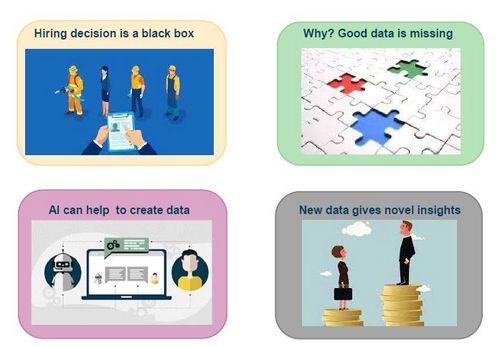Exploiting Information from Job Advertisements to Explore Gender Gaps and Recruitment Strategies
Opening the "black box" of hiring
The project will exploit detailed information from job vacancy advertisements, using artificial intelligence to investigate firms’ hiring intention, actual hiring behavior, and implications for gender gaps in the labor market. Applying Natural Language Processing techniques to job advertisement texts we will create an exceptionally rich and large data set.
Project Details
Young Career Project
Project Leader
Bernhard Schmidpeter
Call
10/2021
In the first part of the proposed project, we will look at recruitment strategies of establishments. First, we will investigate how establishments' recruitment strategy affects the likelihood of filling or withdrawing a vacancy. Second, exploiting information on rejected applicants we further investigate the possible selectivity of establishments during the recruitment process. In a last step, we will also investigate if and how recruitment strategies are influenced by peer establishments operating in the same local labor market.

In the second part of the project, we will explore if and how firms have reacted to the introduction of an anti-discrimination law in Austria. Exploiting information from unstructured vacancy texts using a machine learn approach, we will investigate if the introduction of the law led firms to change from an explicit statement of gender preferences to an implicit one and if firms comply with their stated preferences. Looking at job advertisements in such a way allows an entirely new approach to investigate discriminatory outcomes.
Bernhard Schmidpeter, MSC PhD studied in Nuremberg, Mannheim and Madrid before completing his PhD at the JKU Linz. Since 2020, he has been an Assistant Professor (non-tenure track) at the Department of Economics. He is also a Research Fellow at the RWI in Essen and Research Affiliate at the IZA - Institute of Labor Economics. His research interests are in the area of applied microeconomics, especifically labor and family economics, and the economics of education. In addition to this project, he is currently working on the question of how changing labor market conditions such as the digitization of work affect labor markets and individuals.

 Go to JKU Homepage
Go to JKU Homepage


